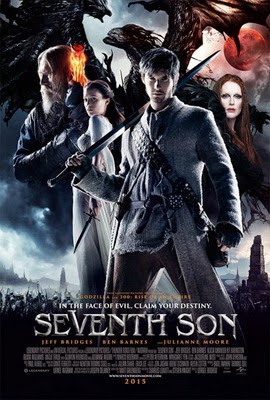A few
days ago, when I first heard that Leonard Nimoy had gone to the hospital with
heart trouble, I was wearing his face on my t-shirt. The shirt, bright red with
Nimoy as a jowlier, heavier-featured late-vintage Mr. Spock—he always reminds
me of Jackie Mason in that picture—holding up his split-fingered Vulcan salute
next to the inevitable well-wish “LIVE LONG AND PROSPER,” was a gift from The
Wife and The Kid. There are days when I suppose I might be a little embarrassed
to admit that, at the age of fifty-two, I still sometimes wear Star Trek t-shirts.
This is
not one of those days.
I’ve been
a Star Trek fan for the vast majority of my life.
I can dimly remember the show’s original run, but it was a few years later,
when it ran in syndication in the very early ‘70s, that it became one of the
fanatical enthusiasms of my childhood. And it appears that the original Star Trek is something I’m not likely to ever
outgrow. I still watch it, still notice new aspects of the episodes—often new
absurdities and illogicalities—and take comfort and refreshment from it. I
recognize the validity of every criticism that could be leveled against Gene
Roddenberry’s silly space opera—the cultural chauvinism, the jocularity, the
often preposterous science, the inconsistent social values—and I say there’s
something about the show, some core of decency and good-will and gallantry,
that transcends all of it and makes it mythic.
Spock was
one of the main reasons for this. Nimoy, who passed on today at 83, had a
fairly rich career as an actor before Spock, and very rich career as an actor
and a director after Spock. But it is, of course, as Spock that he’ll be most
remembered—a supposedly emotionless native of the planet Vulcan, though plagued
by emotional flare-ups from his maternal human half, cool, curious, expansively
knowledgeable, quietly ironic. Spock was my childhood role model, and though I
have never succeeded in emulating him—I’m far closer, alas, to the irascible
and sentimental Dr. McCoy—I’m still extremely grateful for the influence.
We were,
of course, always meant to see that Spock’s lack of emotion was a pose—that he
was more compassionate, and in his way possibly even more passionate, than any
of the other characters. His cerebral rationality, sometimes mistaken for
callousness, was really in service of a bottomless, if sometimes bemused,
sympathy for the wound-up humans around him.
When I
say that Star Trek in general and Spock in particular
were major and lifelong influences on me, I mean it without condescension—my
gratitude is serious. But one of the reasons that Spock was able to influence
so many people of my generation is that Nimoy wasn’t that serious. Like many
members of that cast, he was a little sheepish about his identification with
the character, to the point that he titled his first memoir I Am Not Spock. He later made
enough peace with the role—finally getting some serious financial reward for it
probably helped—that the sequel was titled I
Am Spock.
All of
those actors were essential to the show’s unique alchemy, but the original Star Trek would have been an especially dreary
affair without Nimoy’s droll sensibility. I was watching Star Trek just last weekend, before I heard
about Nimoy’s illness, and had been thinking how truly good he was, how much
wry deadpan comedy he was able to bring to the show (“Sir, there is a
multi-legged creature crawling on your shoulder.”).
The
actor’s slyness fed into the character’s—I remember hearing Nimoy, in various
interviews, explain that he came up with Spock’s handy nerve pinch so that he
could avoid the strenuous fight scenes that William Shatner so often had to
engage in, and how Spock had borrowed the Vulcan hand gesture from rabbis at
the Orthodox services of his Boston youth. In short, like many hero figures,
he—and Kirk and McCoy and the rest, each in their own way—made heroism look
like fun. Spock’s upraised
eyebrow may ultimately prove as iconic as Groucho’s brow-wiggle.
I had
hoped to meet or see all the members of the original Star Trek cast before they headed off to the
Undiscovered Country, and so far I haven’t done too badly—I saw Shatner in a
play in Ohio in the ‘70s, and in the decades that followed I interviewed
DeForest Kelley and Walter Koenig and Grace Lee Whitney, and got an autograph
from James Doohan. I haven’t yet caught up with George Takei and Nichelle
Nichols, and now Nimoy (along with Majel Barrett) has slipped away from me. No
doubt Mr. Spock would tell me that it’s highly illogical to feel sad about
this, but I do. No matter though—Nimoy lived long, and prospered, and will live
on in many of our memories.






















